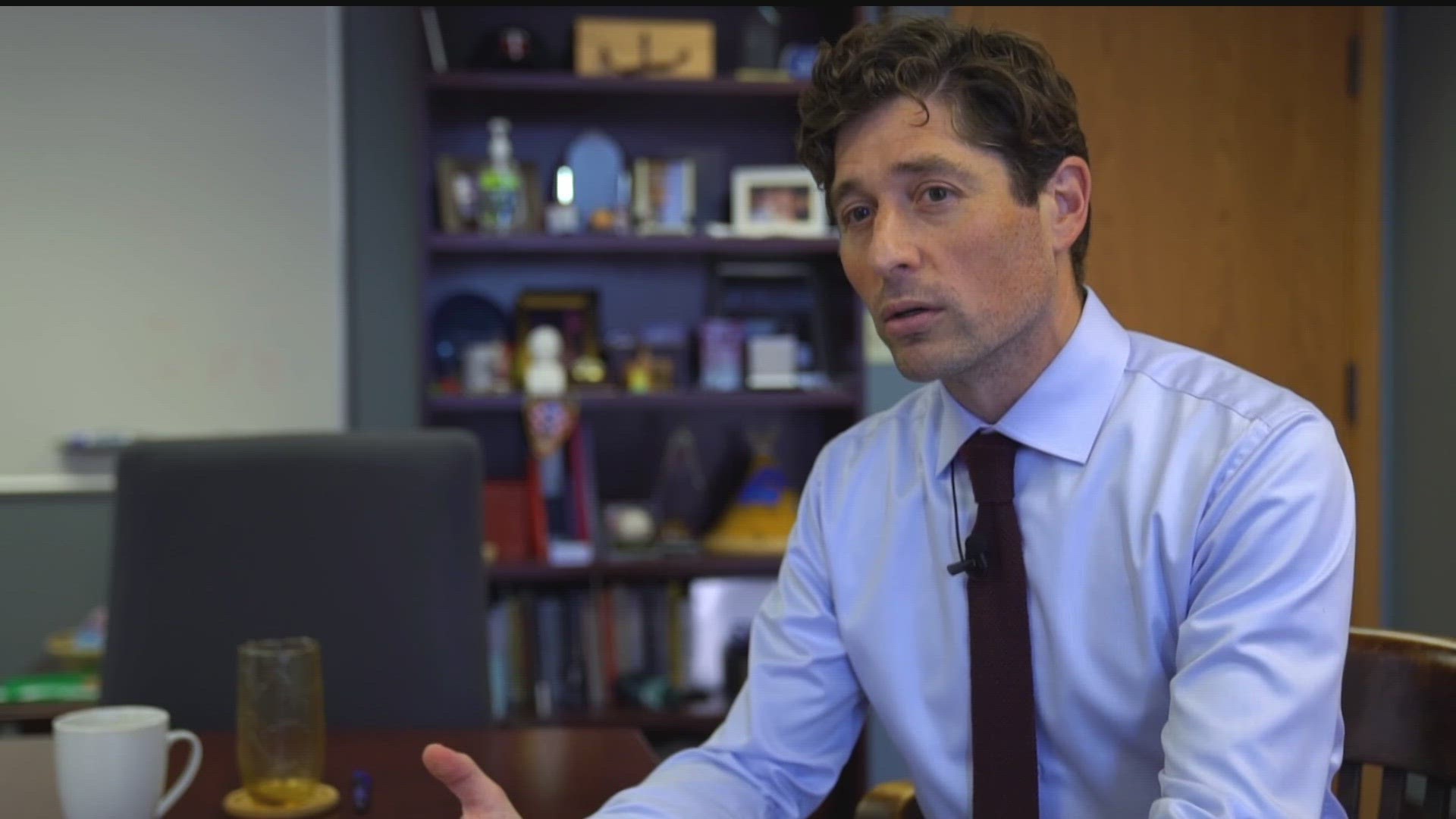MINNEAPOLIS — Minneapolis Mayor Jacob Frey vetoed the Minneapolis ridesharing ordinance that was approved by city council last week, but received a commitment from Uber to pay driver minimum wage during driving hours.
The commitment from Uber will give drivers at least minimum wage, while also guaranteeing that drivers receive at least $5 per trip in Minneapolis. Lyft has yet make a commitment.
“Over the past couple weeks, I have spoken with drivers, riders, advocates, business associations, labor unions, and rideshare companies alike – and from the feedback we gathered, it’s clear we need more time to get this right,” said Frey in a statement. “In the coming weeks, we will work in partnership with all stakeholders to do our homework, deliberate, and make sure we put together an ordinance that is data-driven and clearly articulates policies based on known impacts, not speculation.”
The vetoed ordinance, which the Minneapolis City Council passed by a vote of 7-5, would have also guaranteed drivers at $5 per trip, or $1.40 per mile and $0.51 per minute, whichever was greater. It would have also guaranteed that riders and rivers get receipts within 24 hours of a completed trip with details outlining how much the rider paid versus the driver received.
"This veto is an inexcusable betrayal of Minneapolis workers," Minneapolis City Councilmember and lead author of the ordinance Robin Wonsley said in a statement, "The ordinance was developed over eight months of consultation with drivers, city staff, and national experts. As a Council Member, Jacob Frey voted to approve a $15 minimum wage, but evidently he is ready to abandon any commitment to living wages or workers’ rights under the pressure of lobbying by multibillion-dollar out-of-state corporations. This fight is not over. The drivers who have been organizing for this will continue to show up, because their livelihoods are on the line. And as long as I’m in City Hall, I’ll support their work and the rights and dignity of every worker in the city."
Eid Ali, the president of the Minneapolis Uber and Lyft Drivers Association, said he was "devastated" by the news of the mayor's veto.
"We will regroup and will absolutely come up with action," Ali said. "Basically, we will go back to the community and organize."
Both Uber and Lyft previously warned that they could have to end operations in Minneapolis should the ordinance pass. After receiving the city council's approval, a Lyft spokesperson warned that it could "nearly double" the costs for rides if approved by Frey.
After the mayor's veto, a Lyft spokesperson said that "we are no longer planning to exit the city."
"Mayor Frey was right to listen to drivers, riders and our communities and reject the proposal," the company said in a statement. "By attempting to jam through this deeply-flawed bill in less than a month, it threatened rideshare operating within the city. We support a minimum earning standard for drivers, but it should be part of a broader policy framework that balances the needs of riders and drivers. Minneapolis drivers on Lyft last quarter earned on average more than $37 per utilized hour, including tips and bonuses. We're committed to continue collaborating with stakeholders at both the state and local level on a sustainable solution that improves on this for everybody moving forward."
Meanwhile, an Uber spokesperson said “it remains our goal to pass comprehensive, statewide legislation that will raise rates for drivers without sacrificing ridership."
"In that effort, we look forward to continued work on the Governor’s Task Force. In the meantime, for engaged time in Minneapolis (time spent en route to a passenger and while a passenger is in the vehicle), Uber will guarantee all drivers will earn at least the equivalent of the Minneapolis minimum wage, with no trip fare resulting in less than $5," Uber said. "We appreciate Mayor Frey’s thoughtful approach and the opportunity to continue working together to get this right and hope the Minnesota legislature quickly passes a statewide compromise in February.”
Following the veto, Mayor Frey's office released a statement saying it would begin a process for a new ordinance that will include input from drivers, labor unions, business associations, disability advocates, city staff, city council representatives, and representatives with both Uber and Lyft.
“I believed we could craft a policy that both leads in advocacy of worker's rights and maintains service for those who greatly depend on this for their day-to-day needs; sadly, this proposal did not accomplish that,” said Council Vice President Linea Palmisano in a statement. “This proposal needed more work to address the negative ramifications of this ordinance, which was why I voted to send it back to committee to address some of these serious flaws. Drivers deserve increased pay and protections. Riders want more of their fare to go into the driver's pocket, yet many feel the increase in cost with this particular ordinance will entirely remove their ability to use it. With over half of the rides in our city starting or ending in low-income areas, if the impact of this ordinance is to double the cost of using rideshare, mobility will become an even larger burden.”
Watch more local news:
Watch the latest local news from the Twin Cities and across Minnesota in our YouTube playlist:

